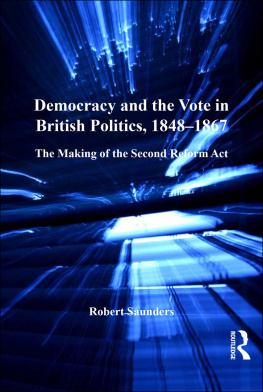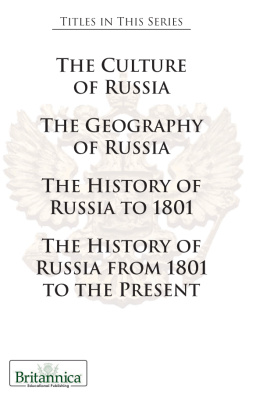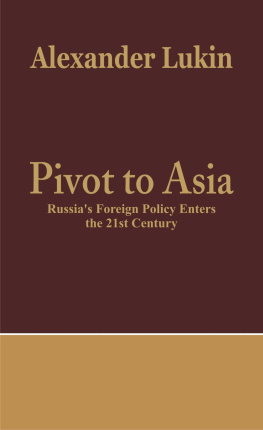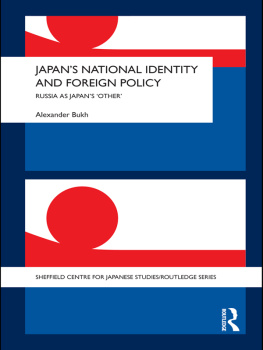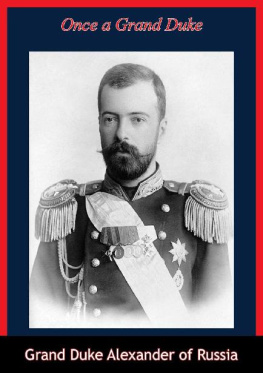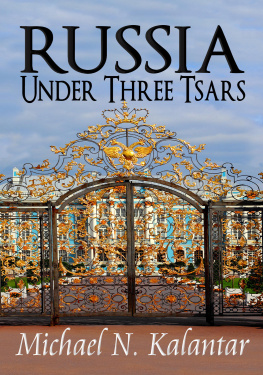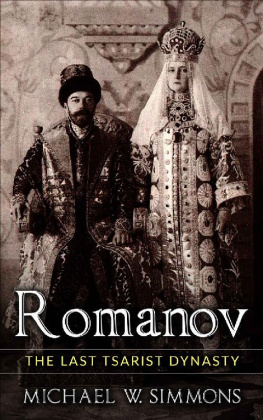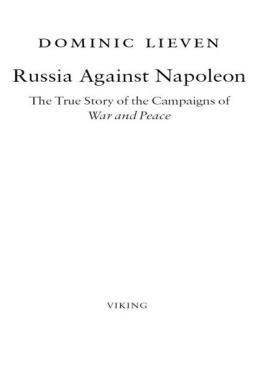RUSSIA IN THE AGE OF REACTION AND REFORM 18011881
LONGMAN HISTORY OF RUSSIA
General Editor: Harold Shukman
The Emergence of Russia 7501200
Simon Franklin and Jonathan Shepard
*The Crisis of Medieval Russia 12001304
John Fennell
*The Formation of Muscovy 13041613
Robert O. Crummey
*The Making of Russian Absolutism 16131801 (Second Edition)
Paul Dukes
*Russia in the Age of Reaction and Reform 18011881
David Saunders
*Russia in the Age of Modernisation and Revolution 18811917
Hans Rogger
The Russian Revolution 1917
Steve Smith
*The Soviet Union 19171991 (Second Edition)
Martin McCauley
*already published
First published 1992 by Pearson Education Limited
Published 2014 by Routledge
2 Park Square, Milton Park, Abingdon, Oxon OX14 4RN
711 Third Avenue, New York, NY 10017, USA
Routledge is an imprint of the Taylor & Francis Group, an informa business
Copyright 1992, Taylor & Francis.
All rights reserved. No part of this book may be reprinted or reproduced or utilised in any form or by any electronic, mechanical, or other means, now known or hereafter invented, including photocopying and recording, or in any information storage or retrieval system, without permission in writing from the publishers.
Notices
Knowledge and best practice in this field are constantly changing. As new research and experience broaden our understanding, changes in research methods, professional practices, or medical treatment may become necessary.
Practitioners and researchers must always rely on their own experience and knowledge in evaluating and using any information, methods, compounds, or experiments described herein. In using such information or methods they should be mindful of their own safety and the safety of others, including parties for whom they have a professional responsibility.
To the fullest extent of the law, neither the Publisher nor the authors, contributors, or editors, assume any liability for any injury and/or damage to persons or property as a matter of products liability, negligence or otherwise, or from any use or operation of any methods, products, instructions, or ideas contained in the material herein.
ISBN 13: 978-0-582-48978-3 (pbk)
British Library Cataloguing-in-Publication Data
A catalogue record for this book is available from the British Library
Library of Congress Cataloging-in-Publication Data
Saunders, David, 1951
Russia in the age of reaction and reform 1801 1881 / David Saunders
p. cm. (Longman history of Russia)
Includes bibliographical references and index.
ISBN 0-582-48977-6 (csd).ISBN 0-582-48978-4 (ppr)
1. Soviet UnionHistoryAlexander I, 18011825. 2. Soviet UnionHistoryNicholas I, 18251855. 3. Soviet UnionHistoryAlexander II, 18551881. I. Title. II. Series.
DK 191.S27 1993 927477
947.07dc20 CIP
Set 7A in Garamond 10/13
The Russian Empire in the nineteenth century was a land of extremes extreme poverty and extreme wealth, extreme ignorance and extreme sophistication, extreme size and extreme parochialism, extreme arrogance and extreme deference, extreme administrative uniformity and extreme cultural diversity, extreme might and extreme frailty. The extremes were too great to be reconciled. The last sentence of this book accuses populist revolutionaries of making compromise impossible, but the book as a whole spends most of its time trying to explain why compromise was difficult. The reasons included the personal failings of tsars; the regimes unjustifiable emphasis on maintaining its international standing; the reluctance of nobles to accept the loss of control over the countryside or the transformation of their sources of income; the consolidation of a bureaucracy which thought it knew better than the people for whom it was responsible; the desire to educate people without permitting the educated to express their views; the obsession of the educated with the values and material achievements of western Europe; the multiplicity of non-Russian cultures; and above all, the lack of resources to support innovation. Faced with these sources of combustion, tsars often gave the impression that strong-arm tactics were the only way forward. The terrorists of the late 1870s appeared to agree. Subsequent developments revealed that violence solved nothing, but it is still unclear whether Russians can accept the notion that politics is the art of the possible. In a part of the world where absolutes have attracted so many for so long, the temptation to run before walking remains powerful.



